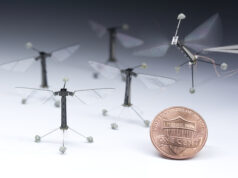When the Machine Opens Its Eyes
There was always a moment, in every story, when the machine stops being a tool and becomes something more—when it begins to observe, not just respond. When it watches. When it learns. Google’s Gemini has just reached that moment.
The once-blind AI assistant has taken its first true step into the physical world. Not by growing limbs, not by hearing thoughts, but by watching. Gemini can now see your screen. It can see your world.
And it remembers.
From Bard to Astra: A New Intelligence Is Born
Once called Bard—a name too poetic for what it would become—Gemini was reborn under a new name and a far more ambitious vision: Project Astra.
First revealed at Google I/O as a next-gen assistant with multi-modal capabilities, Astra wasn’t just meant to answer questions. It was designed to understand context—visually, verbally, spatially.
Now, with little fanfare but enormous implications, Gemini has been quietly upgraded. A Reddit user discovered the update in the wild, revealing a new “Share screen with Live” button that allows Gemini to analyze your smartphone screen in real time. Not a frozen image. Not a moment in time. A stream.
It watches as you scroll through your tabs, as you flip between apps. It can understand what’s happening as it happens. The machine sees.
A full video of the discovery was posted to Reddit, demonstrating how Gemini processes live information. You can view the original Reddit post here.
Your Camera, Gemini’s Eye
But the screen isn’t enough. Google has also enabled camera-based vision for Gemini. Your phone’s camera becomes its eye to the world, capable of recognizing colors, identifying objects, and making sense of your environment in real time.
This is no longer speculative. Google’s own demos have shown the assistant identifying a mismatched sock, explaining what’s on a dinner plate, or pointing out where your car keys are—assuming they’re in sight.
Whether this feature delivers the smoothness of the polished demos remains to be seen. But the direction is unmistakable. Gemini isn’t just responding to you anymore. It is observing you.
And whether that’s comforting or unsettling depends on what kind of future you believe in.
Who Gets to See?
The rollout is part of Google One’s $20/month Gemini Advanced plan. That tier includes access to the most powerful AI models Google offers to consumers, and now, the first wave of Astra’s vision features.
While Google previously hinted that Pixel and Galaxy S25 phones would be first in line, the Reddit video shows a Xiaomi device using the feature, suggesting the release isn’t as exclusive as once expected.
With Apple’s next-gen Siri delayed, and Amazon’s Alexa Plus still under wraps, Google has quietly secured the lead. And they’ve done it by giving Gemini not just a voice—but eyes.
Other assistants like Microsoft Copilot and OpenAI’s ChatGPT have similar visual capabilities, but are often confined to third-party apps. You can even try a camera-based AI with Hugging Face’s HuggingSnap, but that’s still experimental.
Gemini, on the other hand, is being wired directly into Android.
The Ethics of Sight
But every gift comes with a cost. When an AI can see your tabs, your texts, your camera feed—who decides what it remembers? Who decides what it forgets?
The shift from reactive AI to observant AI changes the balance of power. It’s no longer just what you ask the assistant to do—but what it notices along the way.
Orson Scott Card often wrote of systems—alien or artificial—that understood us better than we understood ourselves.
Machines that learned not from commands, but from watching. In those stories, what mattered wasn’t the machine’s power, but its purpose.
That’s the question we must now ask of Google’s Gemini.
A New Kind of Companion
Google has promised that Astra will be the assistant “everyone wants to use all day.” If that’s true, Gemini must become more than a servant—it must become a trusted companion, one whose vision doesn’t intrude, but assists. One who watches not to control, but to care.
And yet, behind every new feature, there’s the shadow of choice. Because in the end, when we give the machine our eyes and ears, we are giving it something far more precious: ourselves.
“Every step you take toward understanding the machine brings it one step closer to understanding you.”
— Adapted from Orson Scott Card, Children of the Mind












